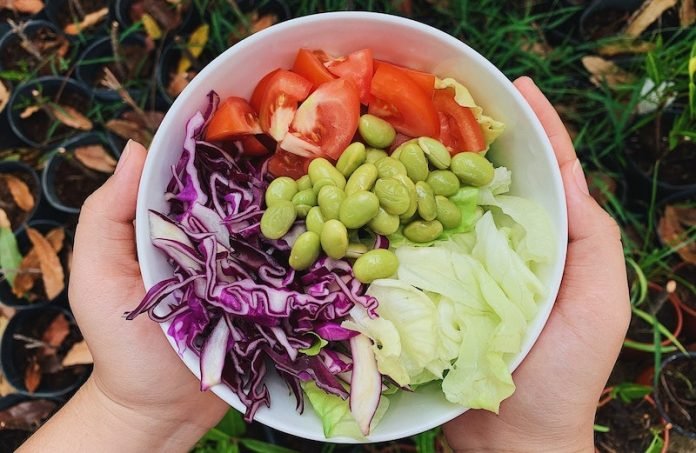
Scientists from the Physicians Committee found that a vegan diet is more effective for weight loss than a Mediterranean diet.
They found that a low-fat vegan diet has better outcomes for weight, body composition, insulin sensitivity, and cholesterol levels, compared with a Mediterranean diet.
The research is published in the Journal of the American College of Nutrition and was conducted by Hana Kahleova et al.
In the study, the team assigned participants—who were overweight and had no history of diabetes—to a vegan diet or a Mediterranean diet in a 1:1 ratio.
For 16 weeks, half of the participants started with a low-fat vegan diet that eliminated animal products and focused on fruits, vegetables, whole grains, and legumes.
The other half started with the Mediterranean diet, which followed the PREDIMED protocol, which focuses on fruits, vegetables, legumes, fish, low-fat dairy, and extra virgin olive oil, while limiting or avoiding red meat and saturated fats.
Neither group had a calorie limit, and participants did not change exercise or medication routines unless directed by their personal doctors.
As part of the crossover design, participants then went back to their baseline diets for a four-week washout period before switching to the opposite group for an additional 16 weeks.
The researchers found that within 16 weeks of each diet:
Participants lost an average of 6 kilograms (or about 13 pounds) on the vegan diet, compared with no meaningful change on the Mediterranean diet.
Participants lost 3.4 kg (about 7.5 pounds) more fat mass on the vegan diet.
Participants saw a greater reduction in visceral fat by 315 cm3 on the vegan diet.
The vegan diet decreased total and LDL cholesterol levels by 18.7 mg/dL and 15.3 mg/dL, respectively, while there were no significant cholesterol changes in the Mediterranean diet.
Blood pressure decreased on both diets, but more on the Mediterranean diet (6.0 mm Hg, compared to 3.2 mmHg on the vegan diet).
The researchers note that the vegan diet likely led to weight loss, because it was linked to a reduction in calorie intake, increase in fiber intake, decrease in fat consumption, and decrease in saturated fat consumption.
If you care about nutrition, please read studies about toxic gas that provides almost all of our food, and weight loss food myths you need to know.
For more information about diet, please see recent studies about 10 worst foods to avoid if you have diabetes, and results showing Nordic diet benefits are beyond weight loss.
Copyright © 2022 Knowridge Science Report. All rights reserved.



